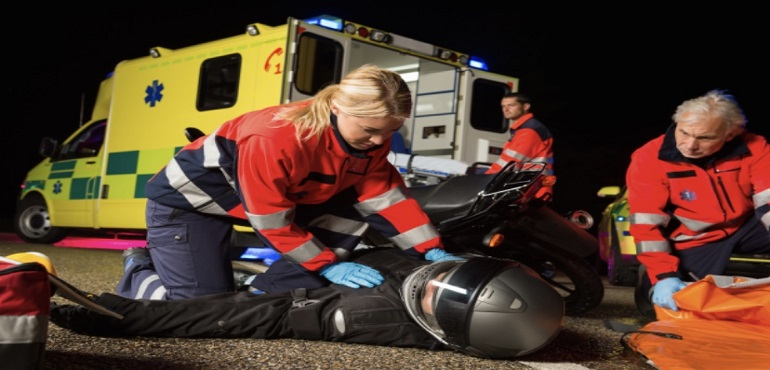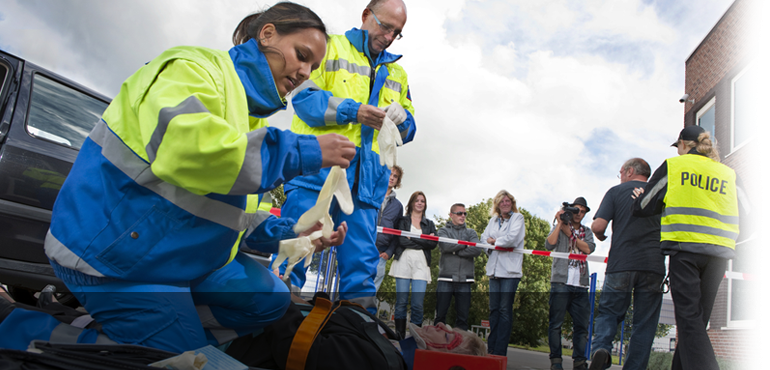| Toll Free : 1844 495 7333(injury hotline- new cases only) | |
| Text a Personal Injury Lawyer 24/7 and get instant help.TM (416 931 5015) | |
| Head Office : 905 495 7333 |
Cambridge Personal Injury Lawyers: Defining the term “Car Accident”
October 27, 2017Most of us use the word “accident” in the broadest sense of the term, namely that it’s an unplanned, unforeseen event, that causes certain problems for those affected by it.
Accidents can be of many types – household or work-place mishaps, slip or trip and fall accidents, motor-vehicle accidents, medical accidents, those caused by defective products, accidents involving poisonous or hazardous substances, implements, weapons, etc.
Accidents also cause injury or loss, decrease in value of a particular object or resource and/or cause an increase in liabilities. Though technically, “accident” may not have a clearly defined legal meaning, insurance terminology defines it as an event that’s not intentionally caused, but which was not inevitable.
What is a Car/Motor-Vehicle Accident?
In terms of motor-vehicle accidents (MVA), accidents are defined as events that occur when a motor-vehicle strikes or collides with another vehicle, stationary object, pedestrian or animal.
Such accidents can result in a range of consequences, including injuries, loss of limb or life, financial, physical and emotional repercussions and long/short term inability to work and play. Accidents can be life-altering in the sense that a victim who’s permanently injured has to face a complete change in their way of life.
In terms of insurance, accidents are not really “accidental.” Most of them are avoidable and preventable since they are seen as being caused by someone’s fault or negligence, to a greater or lesser degree.
The concept of “negligence” is very important in terms of insurance and getting compensation for the losses suffered by injured drivers. It means careless or inadvertent conduct that results in harm or damage – something that’s commonly found in automobile accidents.
Establishing Liability
Most states, provinces, governments have regulations regarding the use and operation of motor-vehicles on public roads. Any unintentional violation of these laws and regulations can be seen as negligence. The person who has flouted these regulations had a duty of care to ensure that their operation of the vehicle does not cause harm or endanger the safety of others.
The person whose negligence or fault caused the accident is liable to pay compensation to injured persons. A simple test to establish liability is to ask the question whether the accident would have occurred if the at-fault party had not flouted the safety norms.
Under Ontario laws, all those injured in MVAs, regardless of fault, are entitled to get statutory benefits from their own insurers. Additionally, the injured are also entitled to seek compensation by filing a personal injury suit against the at-fault party.
Contact a Cambridge personal injury lawyer with experience and expertise in dealing with MVAs to help get the deserved compensation.
Recent Legal Interpretations of the Term
In a recent case, the LAT (License Appeal Tribunal) which was established to resolve appeals regarding compensation claims, broadened the scope of the term “accident” as per statutory benefits. This allows the entry of claims that may not fit into the category of “accident” as we know it.
The laws and legal terms are constantly changing and it’s wise to seek advice and assistance from a knowledgeable Cambridge personal injury lawyer under the circumstances.
Cambridge Personal Injury Lawyers: Defining the term “Car Accident”
October 27, 2017Most of us use the word “accident” in the broadest sense of the term, namely that it’s an unplanned, unforeseen event, that causes certain problems for those affected by it.
Accidents can be of many types – household or work-place mishaps, slip or trip and fall accidents, motor-vehicle accidents, medical accidents, those caused by defective products, accidents involving poisonous or hazardous substances, implements, weapons, etc.
Accidents also cause injury or loss, decrease in value of a particular object or resource and/or cause an increase in liabilities. Though technically, “accident” may not have a clearly defined legal meaning, insurance terminology defines it as an event that’s not intentionally caused, but which was not inevitable.
What is a Car/Motor-Vehicle Accident?
In terms of motor-vehicle accidents (MVA), accidents are defined as events that occur when a motor-vehicle strikes or collides with another vehicle, stationary object, pedestrian or animal.
Such accidents can result in a range of consequences, including injuries, loss of limb or life, financial, physical and emotional repercussions and long/short term inability to work and play. Accidents can be life-altering in the sense that a victim who’s permanently injured has to face a complete change in their way of life.
In terms of insurance, accidents are not really “accidental.” Most of them are avoidable and preventable since they are seen as being caused by someone’s fault or negligence, to a greater or lesser degree.
The concept of “negligence” is very important in terms of insurance and getting compensation for the losses suffered by injured drivers. It means careless or inadvertent conduct that results in harm or damage – something that’s commonly found in automobile accidents.
Establishing Liability
Most states, provinces, governments have regulations regarding the use and operation of motor-vehicles on public roads. Any unintentional violation of these laws and regulations can be seen as negligence. The person who has flouted these regulations had a duty of care to ensure that their operation of the vehicle does not cause harm or endanger the safety of others.
The person whose negligence or fault caused the accident is liable to pay compensation to injured persons. A simple test to establish liability is to ask the question whether the accident would have occurred if the at-fault party had not flouted the safety norms.
Under Ontario laws, all those injured in MVAs, regardless of fault, are entitled to get statutory benefits from their own insurers. Additionally, the injured are also entitled to seek compensation by filing a personal injury suit against the at-fault party.
Contact a Cambridge personal injury lawyer with experience and expertise in dealing with MVAs to help get the deserved compensation.
Recent Legal Interpretations of the Term
In a recent case, the LAT (License Appeal Tribunal) which was established to resolve appeals regarding compensation claims, broadened the scope of the term “accident” as per statutory benefits. This allows the entry of claims that may not fit into the category of “accident” as we know it.
The laws and legal terms are constantly changing and it’s wise to seek advice and assistance from a knowledgeable Cambridge personal injury lawyer under the circumstances.









